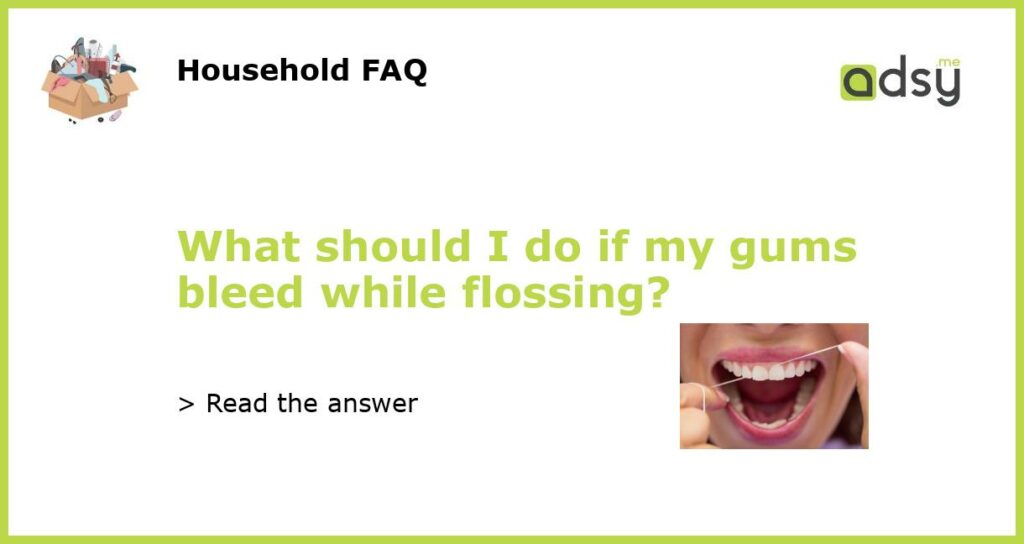Understanding why your gums bleed while flossing
Bleeding gums can be a result of several reasons, and it is essential to explore the underlying cause before taking corrective action. When it comes to flossing, the most common reason for bleeding gums is inadequate or improper dental hygiene. Plaque buildup on the teeth and gums can result in inflammation, leading to bleeding gums. Additionally, aggressive brushing, hormonal changes during pregnancy or menstruation, and certain medications can also cause gum bleeding.
Don’t panic, bleeding gums can be fixed
If your gums bleed while flossing, it does not mean you have a severe condition. While it is essential to speak to your dentist to determine the underlying cause, there are a few steps you can take at home to alleviate the bleeding. Firstly, ensure that you are flossing gently and adequately, and use an antimicrobial mouthwash. Secondly, make sure to brush your teeth twice a day with a soft-bristled brush and fluoride toothpaste, and replace your toothbrush every three months. Finally, maintain a balanced diet and minimize alcohol consumption and smoking, which can cause gum disease and bleeding.
Visit your dentist regularly
While proper at-home oral hygiene can alleviate bleeding gums, it is crucial to schedule regular dental checkups every six months with a dentist. A professional cleaning can remove plaque buildup and detect any potential issues before they become severe. During a dental exam, the dentist will examine your gums, teeth, and mouth and identify any problems, including gingivitis or periodontal disease. Early detection can prevent severe problems and alleviate future discomfort.
Seek medical attention if the problem persists
If your gums continue to bleed while flossing regularly, and you are experiencing pain, swelling, or bad breath, it is time to seek medical attention. Chronic gum bleeding can be a sign of an underlying medical condition, such as bleeding disorders or viral infections. It is essential to schedule an appointment with your dentist or physician and undergo an examination to determine the underlying cause and proper treatment options.
Prevention is key
Finally, prevention is the key to keep your gums healthy and limit bleeding while flossing. Maintain a consistent oral hygiene routine, including brushing twice daily and flossing once a day, and visit your dentist regularly. Choose a balanced diet and limit alcohol consumption and smoking, which can have detrimental effects on your oral health. By taking care of your gums, you can keep your mouth healthy, and your smile bright for years to come.






